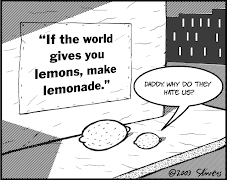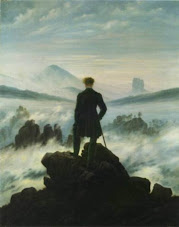This was one of the coolest books I have read in a while. This book was so enlightening and fun to read that as soon as I was done reading it I said to myself, "I have to teach this. I have to teach this." My Lifegroup at church got to hear a small tidbit of it. I could have taught for another hour, but they probably would have tied me up or text death threats if I went over the allotted time, so I couldn't go as in depth as I wanted to go.
My intention of writing this post is basically because this book excited me and I wanted to share it with someone. Of the thousands of people that read my blog, maybe someone will like it :-)
Growing up Baptist, I have heard the story of the Prodigal Son many times. As a matter of fact, images of the animated video still run through my head every time I think about this story. After reading this book, I have a totally different perspective on it. I realized how important this story is concerning God/Sin/Repentance as well as how controversial it was in context with that day and age. If I could go back in time, I want to be there during those 5-10 minutes when Jesus told this story. After all it was a little over a month after hearing this story that the Pharisees decided they needed to kill Jesus. Why was this story so controversial?
John MacArthur said something very interesting about sin. He wrote:
"Sinners come in Two Basic Varieties. Some are straightforward and intrepid in their evildoing, and they don't really care who sees what they do. Invariably, their besetting sin is pride - the kind of pride that is seen in an undue love for oneself and uncontrollable lusts for self-indulgent pleasures. At the other end of the spectrum are secretive sinners, who prefer to sin when they think no one else is looking. They try to mask their more obvious sins in various ways - often with the pretense of religion. Their besetting sin is also pride, but it's the kind of pride that manifests itself in hypocrisy."
We know the story about how the son rebelled against his father, took pleasure in prodigal living, lost everything, realized his plight, remembered the father's compassion, pleaded the father for forgiveness, and was then was restored to new life. What we tend to overlook is the elder brother. The elder brother didn't delight in his brother becoming alive again. He didn't join in the celebration...he got upset with the father. He attacked the virtue, the integrity, and character of his own loving father. The elder son acted as if he would be happier if the younger son was dead. He was full of demands and devoid of any understanding. The elder son should have been the role model - but he was far from it. Do you see the contrast of the elder son to the Pharisees? The parable remained unresolved, but we know what would have happened next.
What can we take from this story? John MacArthur ends this story saying:
"The invitation to be part of the great celebration banquet is still open to all...and it doesn't matter whether you are an open sinner like the Prodigal Son, a secret one like his elder brother, or someone with characteristics from each type. If you know someone who is still estranged from God, Christ urges you to acknowledge your guilt, admit your own spiritual poverty, embrace your heavenly Father, and be reconciled to Him (2 Corinthians 5:20)."
If you would like to read the story again, it's found in Luke 15:11-32.




1 comment:
hello!
thanks for sharing the info ^^!
Post a Comment